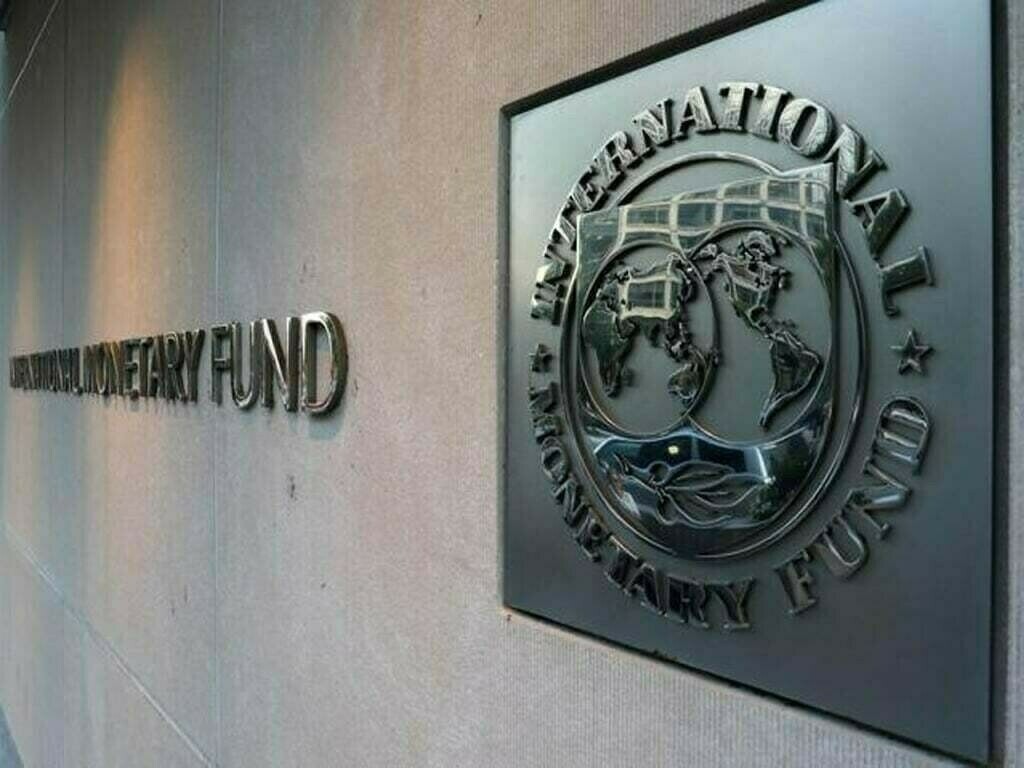Pakistan’s economy has been perpetually struggling through recurrent turbulent phases, facing severe fiscal and external account challenges, exacerbated by outside shocks, weak governance, and inefficient financial management.
The country has grappled with rising debts, unsustainable fiscal deficits, and an over-reliance on external financing.
Despite attempts to implement structural reforms, the economy remains fragile, with inflationary pressures, a depreciating currency, and an underperforming tax system limiting its growth potential. In this context, the International Monetary Fund (IMF) approved on September 27, 2024 a 37-month Extended Fund Facility (EFF) of US$7 billion to stabilize the economy and restore Pakistan’s external viability.
The ongoing EFF is structured around four key pillars, reinforcing monetary and fiscal policy credibility, strengthening public finances, maintaining price stability, and implementing structural reforms. These goals align with the broader objective of achieving sustainable economic growth by fostering a stable macroeconomic environment.
The programme emphasizes revenue generation through fair taxation, limiting inflation through appropriate monetary policies, and promoting private sector-led growth by reforming inefficient state-owned enterprises.
However, despite these ambitious goals, Pakistan’s history of fiscal mismanagement raises concerns about the successful implementation of these measures.
A critical evaluation of Pakistan’s fiscal management, as highlighted in the IMF’s Technical Assistance Report, reveals significant anomalies that have hindered the country’s economic stability.
A major concern is the ballooning public debt, with interest payments consuming 60% of budgeted revenue. This excessive burden limits the government’s fiscal space to invest in development projects and essential social services.
Furthermore, continuous reliance on supplementary grants without parliamentary oversight has led to budget deviations and weakened fiscal discipline.
One of the key deficiencies identified in the report is the fragmented nature of macro-fiscal forecasting. Different institutions handle various aspects of economic planning, but their lack of coordination leads to inefficiencies. The Macro-Fiscal Policy Unit (MFPU), though established, remains underdeveloped and does not effectively support the Finance Division’s Budget Wing. Therefore, without a centralized approach to economic forecasting, the government struggles to implement a coherent fiscal strategy, resulting in unrealistic revenue projections and overestimated expenditure allocations.
Pakistan’s budget preparation process also suffers from systemic weaknesses. Ministries and agencies draft their budget submissions under loose constraints, often inflating expenditure estimates without clear funding sources. The dual budgeting system, which separates recurrent and development spending decisions, further complicates fiscal planning.
A bloated Public Sector Development Plan (PSDP) has led to an accumulation of unfinished projects, exacerbating financial inefficiencies. Additionally, the Budget Call Circular (BCC), which guides ministries in preparing their budgets, lacks clear priorities and up-to-date fiscal constraints, leading to misaligned budget proposals.
Budget execution practices are equally problematic. The government has frequently relied on in-year supplementary grants, reallocating significant portions of the budget without prior legislative approval. In the past two years alone, these grants have constituted nearly 14% of approved spending, with technical supplementary grants adding another 13%. This unchecked fiscal flexibility disrupts budgetary discipline and fosters inefficiencies.
Furthermore, the absence of a comprehensive commitment control mechanism has allowed excessive expenditure beyond approved allocations, contributing to arrears and financial instability.
The digitalization of budget processes has been slow, despite efforts to enhance fiscal monitoring and reporting.
The Ministry of Finance has introduced digital tools such as a data warehouse and dashboards to improve transparency.
However, many processes remain manual and paper-based, delaying fiscal reporting and limiting timely decision-making. Strengthening fiscal data governance and ensuring inter-agency collaboration are necessary steps to modernize financial management.
Another critical issue is Pakistan’s weak revenue collection system. The tax-to-GDP ratio remains alarmingly low, and the country has struggled to broaden the tax base. The IMF programme aims to increase tax revenues by 3% of GDP through direct taxation of previously untaxed sectors such as retail, property, and agriculture.
However, political resistance and administrative inefficiencies have delayed implementation of these reforms. Indirect taxation measures, such as harmonization of General Sales Tax (GST) and expansion of Federal Excise Duty (FED), have faced challenges from various stakeholders. Enhancing tax compliance and reducing exemptions are important for improving revenue generation.
Structural inefficiencies within Pakistan’s state-owned enterprises (SOEs) have further strained public finances. Many SOEs operate at a loss, requiring frequent government bailouts that add to fiscal pressures. IMF has emphasized the need for restructuring and privatization of these enterprises to reduce fiscal burden and create a more competitive market environment. However, political interference and vested interests have stalled these reform efforts.
The recent visit of President Asif Ali Zardari to China emphasized the need for renewed commitments to economic cooperation and investment under the China-Pakistan Economic Corridor (CPEC). Both nations discussed accelerating completion of pending projects and ensuring a more secure and business-friendly environment for Chinese investors. However, Pakistan’s governance flaws and security concerns have continued to delay progress, causing frustration among Chinese stakeholders.
The visit resulted in agreements to strengthen economic ties, but unless Pakistan implements tangible reforms, these commitments may not translate into actual economic benefits. Therefore, to regain investor confidence, the government must address bureaucratic inefficiencies, improve regulatory frameworks, and provide a stable security environment for foreign investments.
Pakistan’s persistent economic struggles are compounded by weak institutional capacity and an over-reliance on short-term fiscal measures. The government has historically resorted to populist policies, including politically motivated subsidies and unsustainable borrowing, which undermine long-term economic planning.
The lack of consistency in economic policies has also deterred foreign investors and limited the effectiveness of reform efforts. Elite capture and widespread corruption continue to hinder implementation of progressive fiscal policies. If Pakistan is to break this cycle, there must be a fundamental shift towards transparent governance, evidence-based policymaking, and strict enforcement of financial discipline.
Looking ahead, Pakistan’s ability to complete the EFF and achieve sustainable growth depends on several key measures. Firstly, strengthening fiscal discipline is imperative. The government must implement a strategic budget framework with realistic revenue projections and enforce expenditure limits. Reducing reliance on supplementary grants and enhancing parliamentary oversight can improve fiscal credibility.
Secondly, tax reforms must be prioritized. The government should expand the tax base by targeting undertaxed sectors while improving compliance through digitalized tax collection mechanisms. Simplifying the tax structure and reducing discretionary exemptions will enhance efficiency and ensure fair revenue distribution.
Thirdly, restructuring SOEs is critical. Implementing governance reforms, improving financial transparency, and accelerating privatization efforts can reduce the fiscal burden and promote market efficiency. Additionally, deregulating key sectors will encourage private-sector participation and foster economic growth.
Fourthly, enhancing budget execution through digitalization is essential. Implementing a robust financial management system, strengthening fiscal data governance, and improving inter-agency coordination will enhance transparency and efficiency. Ensuring timely fiscal reporting and establishing a centralized monitoring system can prevent financial mismanagement.
Finally, fostering a stable macroeconomic environment requires maintaining monetary discipline and exchange rate flexibility. The government must adopt policies that limit inflation, build foreign reserves, and encourage foreign direct investment. Moreover, strengthening social safety nets and implementing governance reforms will further contribute to economic stability.
Pakistan’s fiscal challenges are deeply rooted in systemic inefficiencies and governance weaknesses. While the EFF provides an opportunity to stabilize economy, its success hinges on strong policy implementation and political will.
Only by addressing fiscal anomalies, improving tax collection, restructuring SOEs, and enhancing budgetary discipline, can Pakistan pave the way for sustainable economic growth. A commitment to transparency, digitalization, and structural reforms will be essential in navigating the path to long-term stability and prosperity.
Copyright Business Recorder, 2025
The writer is MA, LLB, Advocate High Court, Visiting Faculty at Lahore University of Management Sciences (LUMS), member Advisory Board and Visiting Senior Fellow of Pakistan Institute of Development Economics (PIDE), is author of numerous books and articles on Pakistani tax laws. She is editor of Taxation and partner of Huzaima & Ikram. From 1984 to 2003, she was associated with Civil Services of Pakistan
The writer is Advocate Supreme Court, specializes in constitutional, corporate, media and cyber laws, ML/CFT, IT, intellectual property, arbitration and international taxation. He studied journalism, English literature and law. He holds LLD in tax laws with specialization in transfer pricing. He was full-time journalist from 1979 to 1984 with Viewpoint and Dawn. He served Civil Services of Pakistan from 1984 to 1996
The writer is a corporate lawyer based in the US with extensive expertise in financial regulations, including Virtual Asset Service Providers (VASPs), corporate governance, and global economic policies. He holds an LLM from Washington University in St. Louis and has completed the Management Development Program at the Wharton School. He has developed regulatory frameworks for North American and South American Financial Institutions and has consulted and trained bureaucrats of different regions. He can be reached at abdulrauff@hotmail.com





















Comments